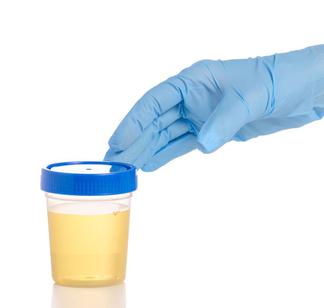Employee Drug Testing
Workplace Screen Intelligence can help bring safety and security back into the work environment by offering drug and alcohol testing for Pre-Employment, Random or Reasonable Suspicion Testing as well as other types of screening.



Why Drug Test?
The Importance of Drug Testing: Protecting People and Workplaces
Drug testing serves as a crucial safety measure across multiple industries and settings, protecting both individuals and organizations from the serious risks associated with substance abuse.
Workplace Safety First
When employees use drugs, their judgment, coordination, and reaction times become impaired. This creates dangerous situations, especially in safety-critical fields like transportation, construction, and manufacturing. Drug testing helps employers identify workers who might endanger themselves or their colleagues.
Research supports this approach. A 2013 study revealed that employees who tested positive for marijuana experienced significantly higher rates of workplace accidents, injuries, and absenteeism compared to their drug-free counterparts.
Prevention and Deterrence
Drug testing programs act as powerful deterrents. When people know they’ll face consequences for drug use, they’re less likely to start or continue using substances. This preventive approach stops problems before they escalate.
Regular screenings also enable early detection. When substance abuse is caught early, individuals can receive timely intervention and support, dramatically improving their chances of recovery.
Supporting Recovery Efforts
For those already in treatment, drug testing provides essential accountability. Recovery programs use regular testing to monitor treatment compliance, verify abstinence, and quickly identify potential relapses.
This monitoring system helps individuals stay committed to their recovery goals while providing treatment professionals with the data they need to adjust care plans effectively.
Meeting Legal Requirements
Many industries must comply with federal drug testing regulations. Transportation companies, federal contractors, and safety-sensitive positions often have mandatory testing requirements. These programs ensure organizations meet legal standards while protecting public safety.
Drug testing results can also serve as legal evidence in criminal investigations and court proceedings when needed.
Health and Wellness Benefits
Drug screening often reveals underlying health issues connected to substance abuse, including mental health disorders that may contribute to addiction. This early detection allows healthcare providers to develop comprehensive treatment plans that address both the addiction and its root causes.
Economic Impact
Substance abuse costs businesses through increased absenteeism, reduced productivity, higher turnover rates, and elevated healthcare expenses. Drug testing programs help identify employees who need support while creating more reliable, productive workforces.
Companies with effective drug testing policies typically see reduced insurance costs and fewer workplace incidents, creating a positive return on their testing investment.
Building Stronger Communities
Drug testing programs contribute to healthier communities by reducing substance abuse rates, improving workplace safety, and connecting people with the treatment resources they need. These efforts create ripple effects that benefit families, neighborhoods, and society as a whole.
When implemented thoughtfully and fairly, drug testing serves as more than just a screening tool—it becomes part of a comprehensive approach to promoting health, safety, and well-being in our workplaces and communities.
